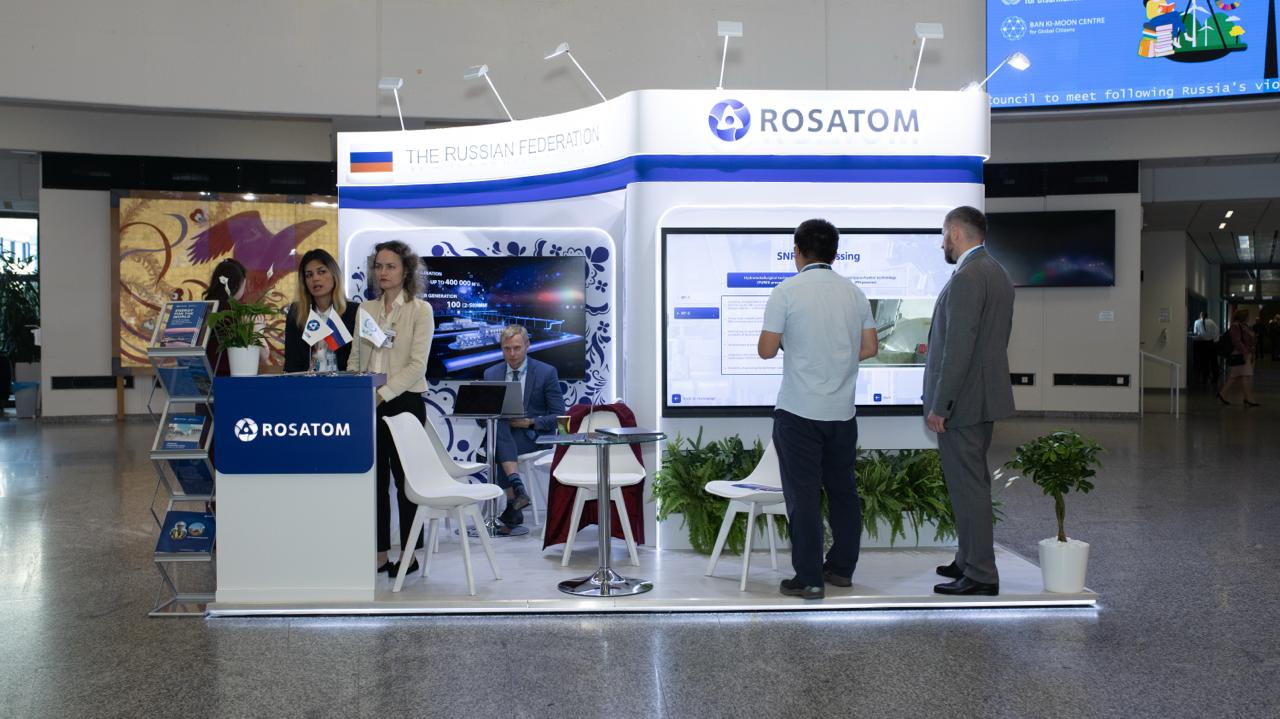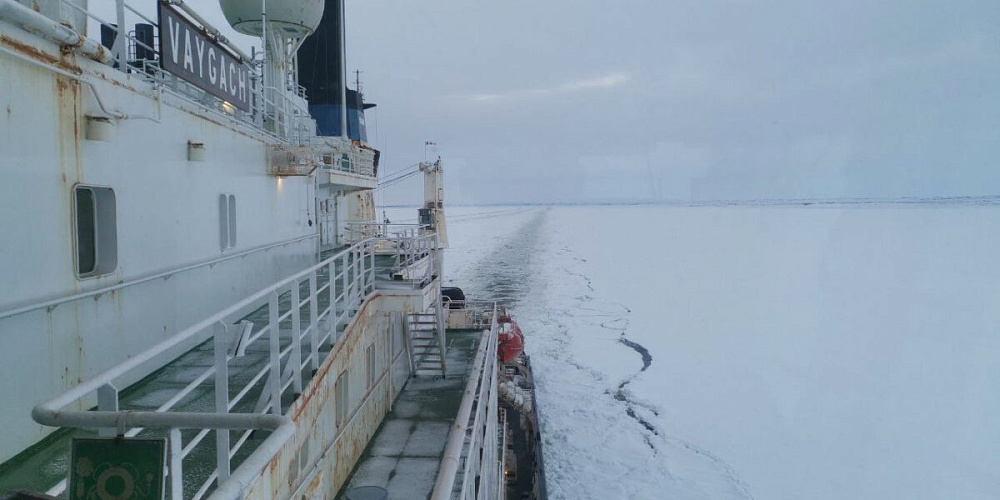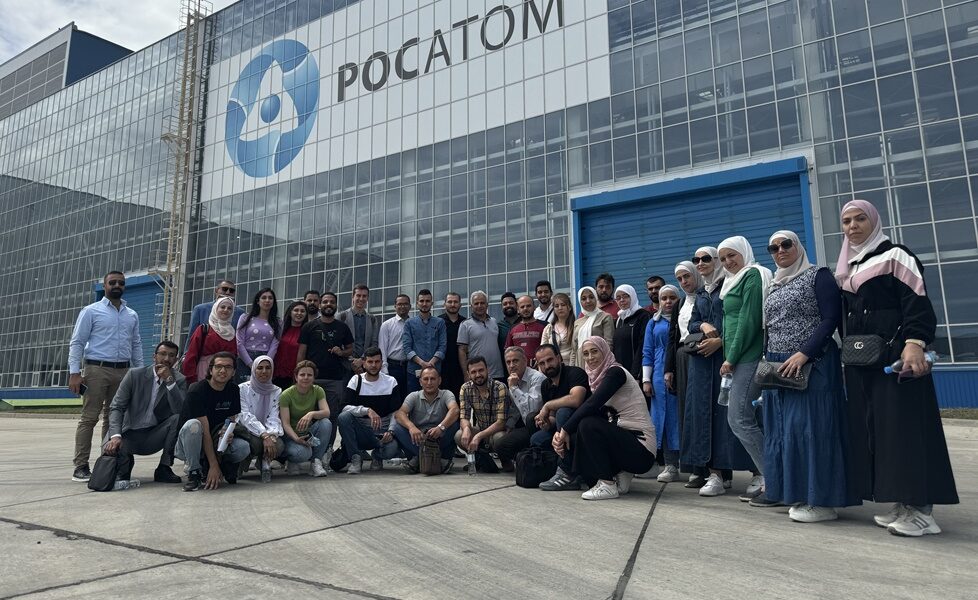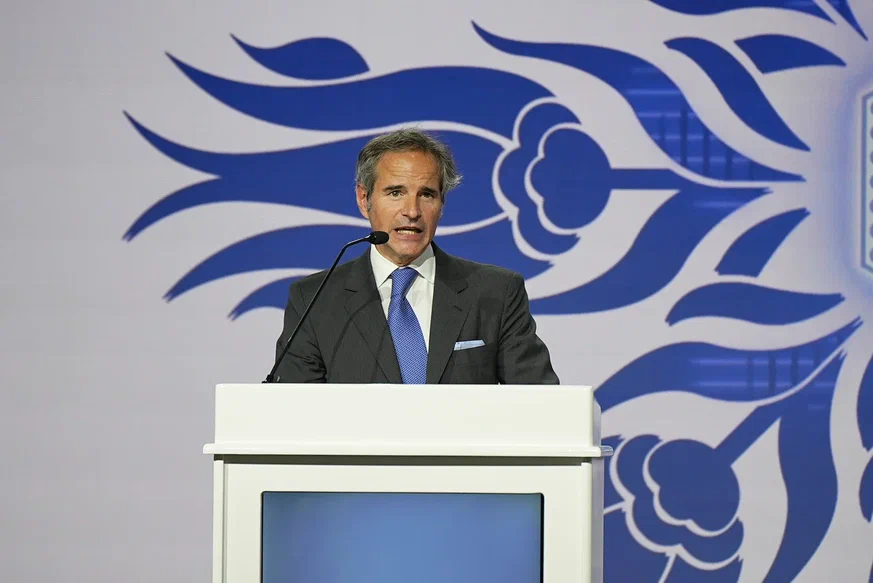Rosatom took part in the 69th
session of the General Conference of the International Atomic Energy Agency
(IAEA), held in Vienna, Austria, from September 15 to 20, 2025. At the annual
forum, Rosatom showcased its achievements, innovative projects, and strategic
vision for the future of nuclear energy on the global stage.
The opening day featured the inauguration of Rosatom’s exhibition stand, dedicated to the 80th anniversary of Russia’s nuclear industry. The ceremony was attended by Rosatom Director General Alexey Likhachev and IAEA Director General Rafael Grossi.
Speaking at the plenary session, Alexey
Likhachev emphasized the prospects for nuclear energy development, with a
focus on international cooperation and sustainable growth. He underlined
Russia’s historic contribution to the peaceful use of nuclear energy and its
longstanding partnership with the IAEA.
“The USSR was among the founding members of the IAEA in 1957. From the very beginning, our country has played an active role in the Agency’s governing bodies – the Board of Governors and the General Conference. For us, the IAEA is the key international organization in our field. Together with the Agency, we implement numerous projects in nuclear power, applications, radiation and physical safety, education and training, safeguards, and fusion,” said Mr. Likhachev.
Key highlights of Rosatom’s
participation included bilateral meetings between Alexey Likhachev and IAEA
leadership, as well as with representatives of partner countries. Discussions
with Rafael Grossi focused on nuclear safety, innovation, and strengthening
cooperation to advance the shared goal of safe and responsible nuclear
development.
Talks with India – one of
Rosatom’s strategic partners – centered on expanding collaboration in peaceful
nuclear energy. Rosatom offered to work with India on localizing large- and
small-scale nuclear power plant (NPP) projects, building on India’s strong
industrial capabilities. The parties reviewed progress on the four units under
construction at Kudankulam NPP (phases II and III) and explored opportunities
for further cooperation, including serial construction of Russian-designed
large and small NPPs in India.
In discussions with Péter
Szijjártó, Hungary’s Minister of Foreign Affairs and Trade, the parties
addressed the status of the Paks II NPP project. Particular attention was given
to preparations for the first concrete pour and ongoing construction progress.
Both sides reaffirmed their commitment to the project’s successful completion.
On the sidelines of the conference, Rosatom’s Corporate Academy and Technical Academy hosted a session titled “One Step Ahead: Rosatom’s Approach to Advancing Nuclear Workforce Development for Newcomer Countries.” The event presented Rosatom’s comprehensive education and training ecosystem for new nuclear nations. Participants included IAEA representatives and international specialists who trained in Russia. Since 2019, Rosatom’s Technical Academy has organized more than 80 international events with the IAEA, engaging over 1,500 participants worldwide. Training covers nuclear power, nuclear safety, nuclear sciences, small modular reactors (SMRs), nuclear medicine, and radiopharmaceuticals.
“Building a strong workforce is one of Rosatom’s top priorities, as nuclear projects span decades. We are creating a global education system based on advanced methodologies and IAEA standards, which are the foundation of international cooperation and safety. This enables us to prepare highly qualified specialists capable of ensuring the reliable and efficient development of peaceful nuclear energy worldwide,” said Tatyana Terentyeva, Deputy Director General for Human Resources at Rosatom.
Special focus was given to small modular
reactors (SMRs) and large-scale nuclear power plants. Rosatom subsidiary
REP JSC hosted a roundtable titled “Integrating SMRs and Large Scale NPPs with
End-User Applications,” featuring international participants. Discussions
covered deployment models for both SMRs (including floating plants) and large
NPPs, tailored to member states’ needs. Key topics included synergies between
large and small-scale generation and the application of artificial intelligence
in design and construction.
During the conference, Rosatom’s Corporate Academy also signed a partnership agreement with the IAEA.
Statement by Mr. Alexey Likhachev, head of the Russian delegation, Director General of the State Atomic Energy Corporation “Rosatom” at the 69th session of the IAEA General Conference (Vienna, September 15, 2025).
The IAEA General Conference
is the Agency’s highest decision-making body, held annually in Vienna to review
its work, budget, and priorities. It also serves as a strategic platform for
discussions on the future of nuclear energy. Sessions and statements are
streamed online for public access (link to be provided once available).
In 2025, Russia’s nuclear
industry celebrates its 80th anniversary. On August 20, 1945, the Special
Committee on the Use of Atomic Energy was established, marking the official
start of the industry. Since then, Soviet and Russian nuclear scientists and
engineers have achieved world firsts: launching the world’s first nuclear power
plant in Obninsk in 1954, commissioning the first nuclear icebreaker Lenin in
1959, and constructing dozens of nuclear power units in the USSR and abroad.
Today, the industry continues to advance in energy, medicine, new materials,
quantum technologies, and space exploration.
The anniversary year is guided by three themes: pride, inspiration, and dream – reflecting the industry’s core values. The celebrations will culminate with the World Atomic Week international forum in Moscow, September 25-28, 2025.





